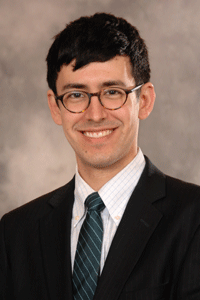Fear, Discrimination and Abuse: Transgender Elders and the Perils of Long-Term Care
March 2011 | Daniel Redman, AgingToday
Editor’s Note: This article appears in the March–April, 2011, issue of Aging Today, ASA’s bi-monthly newspaper covering advances in research, practice and policy nationwide. ASA members receive Aging Today as a member benefit; non-members may purchase subscriptions at our online store.
Phyllis Frye is a long-time lawyer and a judge in Houston. She is also a prominent transgender activist. To transition from male to female—her true gender identity—she underwent several medical procedures and takes estrogen. In Phyllis’s life, she chooses where and how she lives without fear. Looking to her future, she is adamant she would not feel safe living in a nursing home.
Transgender elders are afraid of long-term-care facilities. As Frye puts it, "A secret fear of all transgender people, surgical or not, is to grow old and be psychologically abused, day after day, by the staff of a nursing home." Transgender elders are afraid staff members will refuse to let them live consistent with their gender identity, deny them appropriate medical care (such as hormone therapy), violate their privacy and leave them vulnerable to harassment and mistreatment.
These fears are widely prevalent in the community. In a study published in 2010 in the Journal of GLBT Family Studies, and conducted by FORGE/Transgender Aging Network, executive director Loree Cook-Daniels says, "People reported that they would rather kill themselves than enter a nursing home and be at the mercy of staff. That’s how afraid some people are at the thought of being unable to defend themselves from transphobic healthcare providers." Erasing Identity
Nursing home staff members have enormous power to ignore—and thus erase—a transgender elder’s identity. For transgender elders, one of their worst fears is being placed in a facility that tries to force them to live in their original sex. By using the wrong pronouns or names, a staff member essentially negates a lifetime of struggle.
Transgender elders also fear staff will refuse to provide them with hormone therapy, force them to wear the other gender’s clothing or prevent them from using appropriate restrooms or showers. Facility staff may view these issues as trivial. But for transgender elders they are fundamental to their sense of identity and dignity. Many transgender elders report that they would rather forego care altogether than live in such a facility.
To avoid dealing with bullying by other residents, and because transgender elders are different, some facilities will segregate them. An ombudsman official reports that in one California nursing home, a transgender resident was "prevented from eating with other residents, talking with them or being involved in social and recreational activities with other residents." Nursing home officials also employ this tactic against lesbian, gay and bisexual elders. Jane Gross of The New York Times reported in 2007 that it was a "common" practice to "move gay residents to placate others" if other residents were homophobic.
In addition, transgender elders fear rejection and loss of privacy. Many worry they will be ostracized, ridiculed or harassed if residents learn they are transgender. Some would prefer to keep their transgender identity private, and may be devastated if staff or residents disclose that information. Others want to live openly, but may be prevented from doing so. Turned Away at the Door
Sometimes, because of discriminatory attitudes, nursing home officials will bar a transgender elder from their facility. In late 2007, an older transgender woman who was homeless contacted Chicago’s Center on Halsted, a community center serving the lesbian, gay, bisexual and transgender community. She needed emergency brain surgery, but doctors refused to operate on her unless she had somewhere to go afterward. She had already contacted three nursing homes, but they had all turned her down.
"It was really blatant refusal," says Serena Worthington, former director at Services & Advocacy for GLBT Elders (SAGE) in Chicago. Worthington worked with the center’s Volunteer Transgender Community Liaison, and together they found a long-term-care facility that would take her. When Worthington shares this story with people who don’t work with LGBT elders, she says, "They cannot believe it happened." But when she tells those who work with LGBT elders, she says that "each of them has a similar story. Unfortunately, people are refused medical services and housing and treated badly all too often."
Even medical providers can be unwelcoming—or worse. According to Injustice at Every Turn, a study released in February 2011 by the National Center for Transgender Equality and the National Gay & Lesbian Task Force, nearly a fifth of transgender people report that medical providers have refused to provide care for them. Fear of disrespect or harassment by medical professionals leads transgender elders to delay or avoid seeking needed care. According to Improving the Lives of LGBT Older Adults, a 2010 report by SAGE and the Movement Advancement Project, 30% of transgender people put off or avoid seeking medical care for this reason. Hopeful Signs
While all of this is cause for alarm, there is cause for hope. Thirteen states, the District of Columbia and more than 100 cities have transgender-inclusive nondiscrimination laws. Where those laws include public accommodations provisions, they can be used to bring lawsuits against nursing homes discriminating against transgender people.
To change the climate of California nursing homes, in 2008 the legislature passed a law mandating that the state Department of Public Health design and institute an LGBT-inclusive training program for certified nurse assistants and other personnel. Advocates in the District of Columbia are currently working toward passing a similar law. A nursing home in Chicago conducted focus groups and is currently working toward developing a policy that will ensure that transgender elders receive proper respect and care.
These efforts are in their infancy, and much more must be done. But with more robust cultural competency trainings, vigorous litigation against discriminatory facilities, increased activism both inside and outside nursing homes, and more widespread nondiscrimination laws across the country, we can hope for a time when no elder will fear the inside of a nursing home.
Daniel Redman is an attorney in the Elder Law Project of the National Center for Lesbian Rights, San Francisco, Calif.

